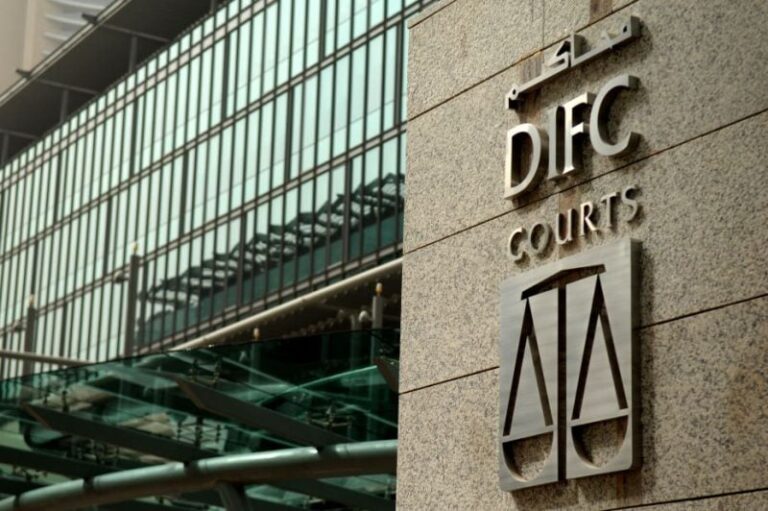The Dubai International Financial Centre (DIFC) Courts announced its performance highlights for H1 2023.
The value of cases across all divisions recorded a 692 per cent increase during the period compared to H1 2022, with a total value of Dhs15bn across 455 cases filed.
In the main Court of First Instance (CFI), 52 cases were filed, with a total value of Dhs14.9bn and an average case value of Dhs427.2m.
Cases within the Arbitration Division under the CFI also recorded an increase, with a total value of Dhs12.9bn and an average claim value of Dhs1.6bn.
Claims brought before the CFI involved companies and business across banking and finance, real estate, construction, manufacturing, retail, hospitality and maritime, and involving disputes related to breach of contract, outstanding payments, wills and probate, and employment.
There was also a noticeable number of ‘opt-in’ cases during H1 2023, with 52.5 per cent of claims in the CFI cases originating from parties ‘electing’ to use the DIFC Courts to resolve their disputes.
The operational capacity of the region’s first Small Claims Tribunal (SCT) was strong in H1 2023, with 242 claims filed, and an overall claim value totaling Dhs19.8m. The average claim value of cases filed at the SCT was Dhs85,000.
Claims were led by disputes involving breach of contract, employment, and property and tenancy. Increased remote virtual hearings through the region’s first ‘Smart SCT’ virtual court, has led to over 73.5 per cent of claims registered originating from parties selecting the SCT as their preferred method for dispute resolution.
Reinforcing year-on-year increased efficiency through its digital and paperless strategy, statistics also confirm that the DIFC Courts issued 100 per cent of orders and judgments digitally, with over 794 orders in the first six months of 2023, and a further 86 judgments issued for the same period.
In addition, 98 per cent of hearings in the CFI were conducted remotely, whilst the SCT and the Court of Appeal recorded 100 per cent remote hearings in H1 2023.
Will service for non-Muslims
Launched through a partnership in 2015 between the DIFC Courts and the government of Dubai, the Wills Service was established to enable non-Muslims who are investing and living in the UAE to pass on their assets and appoint guardians for their children in line with their wishes through a will registration service.
In the first six months of 2023, the Wills Service registered 766 wills, a 37.8 per cent increase in the number of registrations compared with the first six months of 2022, and issued 22 probate orders. Since its inception, the Wills Service has registered over 9,500 wills.
As a part of the UAE government’s commitment to effectively employ advanced technologies and digital platforms, DIFC Courts further leveraged its digital infrastructure to offer videoconferencing for will registrations.
With more and more individuals and businesses across the UAE operating remotely, the video conferencing facility can be accessed via a smartphone, tablet, or a desktop device, allowing residents and investors to register their will from the safety and comfort of their own home or office.
Remote registrations add an additional layer of digital access to the current virtual registry for wills, which allows those living overseas to create and register a DIFC Courts will. Investors and residents can access it from anywhere in the world and be connected, via video link, to a compliance officer sitting in Dubai.
The DIFC Courts also provides an online automated will drafting service for the property will, business owners will and financial assets will, with comprehensive explanatory notes, should individuals wish to draft the will independently.
Focus on sustainability
In March 2023, the DIFC Courts entered a new phase of sustainability with the expansion of digital infrastructure storage at the world’s largest solar-powered green data centre. Moro Hub’s green data centre, which is located at the Mohammed bin Rashid Al Maktoum Solar Park, was inaugurated recently by Sheikh Hamdan bin Mohammed bin Rashid Al Maktoum, Crown Prince of Dubai, and Chairman of Dubai Executive Council.
The facility’s integrated solutions are designed to provide next-generation services in the areas of digital transformation, cloud and hosting services, cybersecurity, IoT services and professional and managed services, as well as Moro services supported by ChatGPT technology.
Impact of DIFC Courts Strategic Work Plan
Justice Omar Al Mheiri, director, DIFC Courts, said: “The DIFC Courts is currently operating on a new roadmap for the years 2022-2024, which includes a strategic work plan that brings more national cohesion to the courts’ projects and initiatives in line with the ‘D33’ economic agenda and the Dubai Digital Strategy. This in turn is providing effective support for the federal and local strategic goals and the centre’s goals. The surge in uptake of the DIFC Courts’ public services in H1 2023 reflects the growing awareness of, and trust in, our expertise, efficiency, and ease of process.”
The strategic work plan adopts end-to-end innovative emerging technologies, ensuring court systems are smart, user-friendly, and agile enough to keep pace with global commerce. Artificial intelligence (AI) is reducing clerical burdens, streamlining the case review methodology, removing document duplications, and unlocking time to take on significantly more complex tasks.
In 2022, the DIFC Courts confirmed the launch of new specialised rules for its Digital Economy Court division.
The rules facilitate the efficient and modern resolution of digital economy disputes, standardising the use of smart forms to provide information through a AI-driven platform.



